Partner Explore: Connecting with Materials, Ideas and Each Other
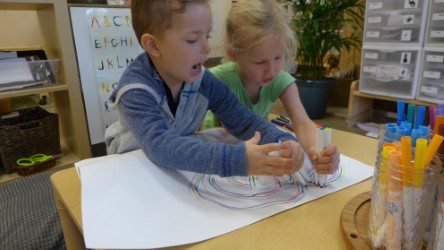
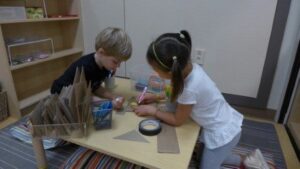
Recently, as the children have been getting more familiar with the routines and setting of school, they are becoming more comfortable with one another, too. As a result, they are revealing deeper expressions of who they are while testing the strengths and limits of their newfound friendships. This is a natural and important next phase for building trust and a sense of belonging, and it’s a time when they move into more complex negotiating and problem solving. To support this stage and greater risk-taking in each of them, we introduced a structure which we call Partner Explore.
Partner Explore offers everyone in the community the opportunity to play with another member of the community. It challenges each partner to practice listening, communicating their thinking, being flexible, and using the strategy of “snapping ideas together.”
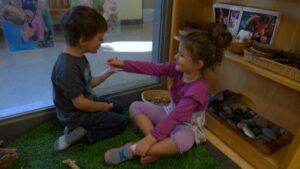
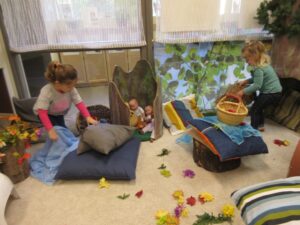
These questions seem to be at the forefront of many children’s minds: How much of my vulnerability can I reveal? When I do, who will be there and how will they support me? What are other children’s vulnerabilities? What challenges will this new relationship be able to hold and sustain? What will feed our friendship? How do I belong, and how does this change or remain constant throughout the day or over time? What can I do if I am uncertain about my place among others?
Last week, we supported the children by creating intentional pairings and small group experiences to build on their growing sense of self in relationship to one another. Our hope is to encourage them to continue to be curious and remain open to many possibilities and partnerships. This is integral to building a strong foundation for learning together in the coming year.
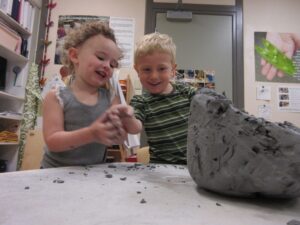
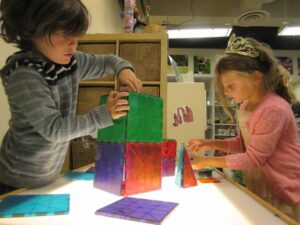
Children as Collaborators: No child lives or learns in isolation. A child is always in search of relationships. Children learn and become themselves through interaction and relationships with other people, ideas, objects and symbols.
— Guiding Principles, Opal School Family Handbook
An excerpt from our Reflection Meeting after our first Partner Explore:
Sometimes collaboration is a little hard. Sometimes you think you can do it but you can’t and you need help so you have to ask for help. It can be hard. It’s fun but it’s also hard because you need to snap ideas together. You need to do some thinking and learning.— Lydia, age 4
